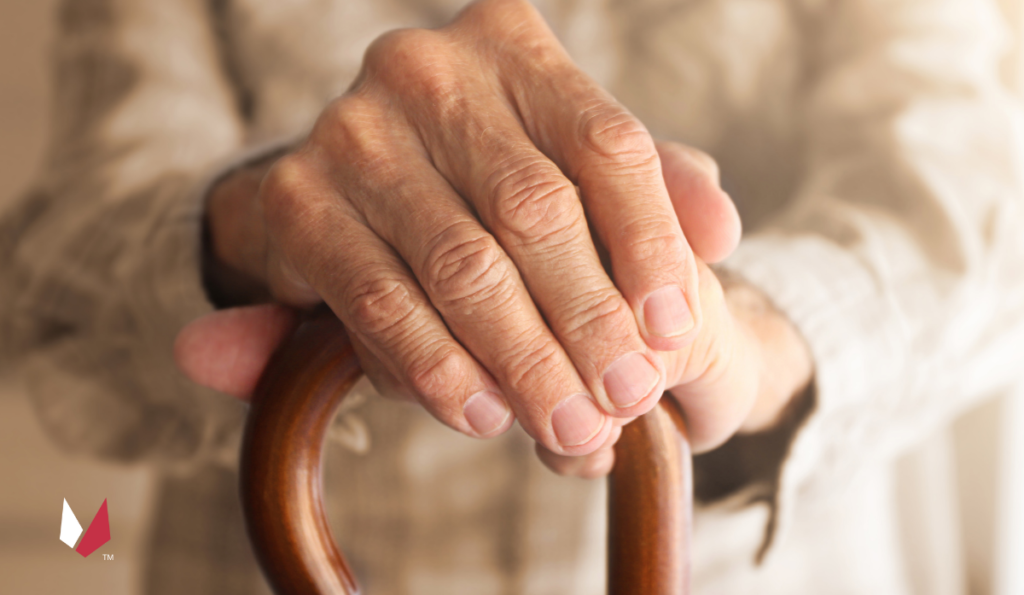WWII Veterans: Helping the Greatest Generation with Home Care

According to The US Department of Veterans Affairs statistics, there are currently around 167,000 surviving WWII Veterans of the 16 million Americans that served at that time. These Veterans are now in their 90’s. Many organizations and Veteran groups have made it a mission to honor these World War II Veterans from Honor Flights to the World War II Memorial in D.C. to the National WWII Museum in New Orleans. What does it mean to “honor” someone? Meriam-Webster defines it as to regard or treat (someone) with admiration and respect. Those who served in WWII, like all military personnel, deserve to be treated with admiration and respect. How? By understanding and supporting them through their current stage of life. How? By understanding and supporting them through their current stage of life.
An elderly woman once said, “it took me longer to turn 16 than it did to turn 85”. Most older people would agree. As someone enters this stage in life, it often comes with many changes. Changes they or their family may not be prepared to confront.
Here are five common issues older adults may encounter[1]:
Chronic Health Conditions
Heart disease, stroke, cancer, and diabetes are among the most common chronic health conditions older adults face. Age-appropriate exercise, balanced meals, and social interaction can support managing these and other health conditions.
Cognitive Health
This focuses on a person’s ability to think, learn, and remember. The most common cognitive health issue is dementia. The most common form of dementia is Alzheimer’s disease. By the age of 85 years and older, between 25 and 50 percent of people display symptoms of dementia, more specifically Alzheimer’s[2]. According to the National Institute on Aging, other chronic health conditions and diseases increase the risk of developing dementia, such as substance abuse, diabetes, hypertension, depression, HIV, and smoking. Harvard Health suggests exercise, a Mediterranean diet, consistent, good-quality sleep, mental stimulation, and social interaction to protect an individual from cognitive decline.
Mental Health
A common mental disorder among seniors is depression, occurring in seven percent of the elderly population. Unfortunately, this mental disorder is often under diagnosed and under treated. Because depression can be a side effect of chronic health conditions, managing those conditions help. Additionally, promoting a healthy living lifestyle such as comfortable living conditions and social support from family, friends, or support groups can help treat depression.
Physical Injury
Every 15 seconds, an older adult is admitted to the emergency room for a fall, making it the leading cause of injury among the elderly. Because aging causes bones to shrink and muscle to lose strength and flexibility, seniors are more susceptible to losing their balance, bruising, and fracturing a bone. However, falls are not inevitable. In many cases, they can be prevented through education, increased physical activity, and reasonable modifications within the home.
Malnutrition
Often underdiagnosed in older adults and can lead to other elderly health issues, such as a weakened immune system and muscle weakness. The causes of malnutrition can stem from other health problems (seniors who have dementia may forget to eat), depression, alcoholism, dietary restrictions, reduced social contact, and limited income. Committing to small diet changes, such as increasing consumption of fruits and vegetables and decreasing saturated fat and salt consumption, can help nutrition issues in the elderly.
These are only some of the changes an older senior may experience. Unfortunately, issues will arise. Therefore, families need to be aware and look for changes in their loved ones. Openly talk about the changes and challenges a person faces as they age. This discussion can seem overwhelming, but it does not have to be.
Older adults and their families do not have to face this alone. Each issue mentioned above and many others have a common theme: reducing or slowing the health issue. The older adult should exercise, eat healthy meals, and socialize. Home care services can support each one by providing independence for the senior, time for the family to just be family, an interaction that prompts exercise, cooking tasty, healthy meals, and stimulating the brain with activity and socialization.
Aging Veterans and surviving spouses may be eligible for the VA’s benefit Pension with Aid and Attendance to ease the financial burden of paying for much-needed home care. Veterans Care Coordination strives to help as many Veterans and surviving spouses as possible gain access to the home care they need in order to continue living the high-quality life they deserve.
Our partner providers join Veterans Care Coordination in the mission to improve the quality of life for Veterans and their families. We partner with quality home care providers to help navigate the VA’s application process for pension funds, maximize the VA pension funds, and get care started as quickly as possible.
Honor the World War II Veteran in your life by giving them the gift they gave us…Independence.
Article originally published March 1, 2022 and updated April 24, 2023
Sources:
1 Adapted from 10 COMMON ELDERLY HEALTH ISSUES by Texas A&M Health
2 How Dementia Affects People Worldwide by BrainTest
3 https://www.nationalww2museum.org/war/wwii-veteran-statistics
